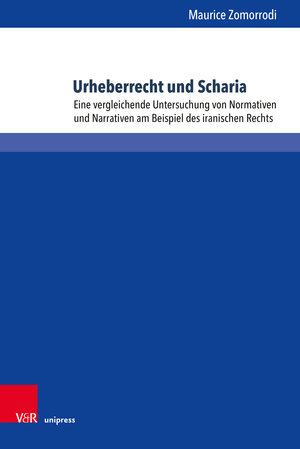
×
![Buchcover ISBN 9783847117568]()
Urheberrecht und Scharia
Eine vergleichende Untersuchung von Normativen und Narrativen am Beispiel des iranischen Rechts
von Maurice ZomorrodiDie Globalisierung des Rechts macht verbindende moralische Narrative zwingend erforderlich, denn die Überzeugungskraft des Rechts hängt von der moralischen Anerkennung (Akzeptanz) der Idee des Rechts ab. So muss auch das Urheberrecht auf ein interreligiöses und interkulturelles Wertefundament gestellt werden. Die Rechtsordnungen islamischer Länder – wie die des Irans – haben sich so erheblich abgegrenzt und unabhängig von westlichen Rechtssystemen entwickelt, dass man größtmögliche Unterschiede erwarten und zugleich davon ausgehen kann, dass die gefundenen Gemeinsamkeiten so nah wie möglich an allgemeingültige Gerechtigkeitsnormen heranreichen. Die verbindenden Narrative stellen also ein universelles moralisches Gebot zum Schutz der Urheber: innen dar.
The globalization of law necessitates compelling moral narratives because the persuasiveness of law depends on the moral recognition (acceptance) of the idea of law. Therefore, copyright law must also be grounded on an interreligious and intercultural value foundation. The legal systems of Islamic countries – such as Iran’s – have significantly differentiated and developed independently from Western legal systems. When comparing these legal systems one can expect the greatest possible differences while also assuming that the commonalities approach universal norms of justice as closely as possible. Thus, the connecting narratives represent a universal moral imperative to protect creators.
The globalization of law necessitates compelling moral narratives because the persuasiveness of law depends on the moral recognition (acceptance) of the idea of law. Therefore, copyright law must also be grounded on an interreligious and intercultural value foundation. The legal systems of Islamic countries – such as Iran’s – have significantly differentiated and developed independently from Western legal systems. When comparing these legal systems one can expect the greatest possible differences while also assuming that the commonalities approach universal norms of justice as closely as possible. Thus, the connecting narratives represent a universal moral imperative to protect creators.


